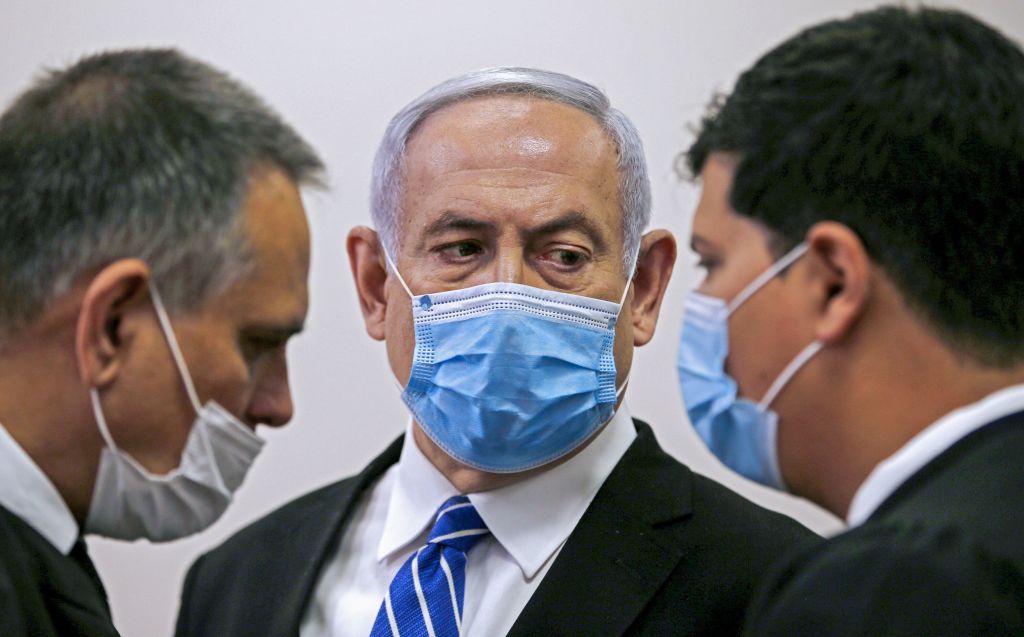
Soon, Benjamin Netanyahu will no longer be Israel’s prime minister. After 12 years in power, what kind of country will he leave behind?
Netanyahu wasn’t always the irremediable hawk that his opponents (especially outside Israel) thought him to be. He often displayed a sharp pragmatism, reflecting a keen intelligence, extensive historical knowledge, impressive economic proficiency and a deep awareness of regional and global trends.
But remaining in power was paramount for Netanyahu, so he tended to focus more on appeasing his base than serving the national interest. That often—and increasingly—meant pitting groups against one another by appealing to people’s tribal instincts. He ruled by incitement, implementing policies that matched his ultra-nationalistic, anti-Arab rhetoric.
For example, Netanyahu backed the 2018 nation-state law, which effectively establishes Israeli Arabs as second-class citizens. And he embraced the goal of annexation of Palestinian lands—an issue over which Israeli right-wing coalitions have historically wavered—effectively taking extreme religious Zionism mainstream.
Netanyahu’s successive governments have worked tirelessly to create the conditions for annexation of the occupied West Bank. At times, he seemed to prioritise the fantasy of Judea and Samaria shared by much of his base above Israel itself, pouring billions of dollars into realising it.
And yet, there were times when Netanyahu wasn’t quite the energetic builder of Jewish settlements in the West Bank that his constituency wanted him to be. In 2009, he declared a 10-month freeze on new settlements that US Secretary of State Hillary Clinton called ‘unprecedented’ (though no restrictions were placed on the thousands of buildings already under construction to expand existing settlements).
In 2014, Netanyahu negotiated a peace framework with Palestinian President Mahmoud Abbas, in which he adopted some unexpectedly reasonable positions. That said, to keep his right-wing base happy, he refused to restrain construction by Jewish settlers in the West Bank and East Jerusalem, even during the negotiations.
A similar logic lay behind Netanyahu’s exorbitant concessions to Israel’s Orthodox community, reversing his own previous efforts made as finance minister in the early 2000s to cut their parasitic dependence on state allowances. By contrast, he invested far less in improving the conditions in Israel’s poorer periphery; he trusted that his unrelenting attacks on the old liberal ‘elites’ would be enough to maintain the support of voters there.
Netanyahu’s history of coalition-building reflects a similar focus on self-preservation. In the past, he has formed governing coalitions with left-leaning and centrist parties. After the last four legislative elections, however, he didn’t hesitate to govern with Jewish-supremacist factions.
This is not some reflection of a genuine ideological shift. If it was, Netanyahu wouldn’t have been willing to strike a coalition deal with Ra’am, an Islamist party linked to the Muslim Brotherhood, last March. This is, after all, the same man who warned in 2015 that Israeli Arabs were heading to the polling stations in droves, in order to give his party a boost in a tight race.
Netanyahu will go down in Israeli history as the politician who legitimised the participation of Arab parties in government. Anything to stay in power. This particular thing, however, may well have been Netanyahu’s undoing: the coalition that his political opponents have formed wouldn’t have been large enough to unseat him without Ra’am.
That’s not the only reason the new coalition couldn’t exist without Netanyahu. Its eight ideologically diverse parties—including leftists, centrists, right-wing nationalists and Arab Islamists—are united by one thing: the desire to unseat him. Many are former Netanyahu allies, who were increasingly alienated by his narcissistic, overbearing and often shameful behaviour. For them, his indictment on three charges of corruption and breach of trust was the last straw.
Netanyahu’s penchant for bridge-burning can also be seen in Israel’s deteriorating image in the United States, especially among moderates and liberals, including most US Jews. By aligning himself closely with the Republican Party and President Donald Trump, he turned support for Israel into a hyper-partisan affair.
The recent escalation of violence with the Palestinians seems to have further estranged many Americans. More fundamentally, it was a wake-up call for Netanyahu, who believed he had all but defeated the cause of Palestinian nationalism. That belief was fortified by the recent signing of the Abraham Accords, establishing diplomatic relations between Israel and four Arab states.
Netanyahu knew how to leverage regional changes to Israel’s benefit. He saw that the Middle East’s incumbent Sunni regimes feared popular uprisings akin to the 2011 Arab Spring, as well as the rise of a nuclear (Shia) Iran. This, together with the recognition that the US is losing interest in the region, created a golden opportunity for Israel to normalise relations with them—ostensibly weakening the Palestinians’ diplomatic support significantly.
And yet, as the recent violence shows, Israel’s Palestinian problem is as acute as ever, and Jerusalem remains a flashpoint that could well trigger a religious war in the Middle East. Netanyahu’s counterproductive fight against the 2015 Iran nuclear deal and his consequent failure to stem Iran’s nuclear ambitions and regional designs only exacerbate the risk of a regional flare-up.
Beyond the Abraham Accords, Netanyahu oversaw two other major strategic developments. First, building on Israel’s new status as a gas-producing power in the Eastern Mediterranean, he established a tripartite strategic alliance with Greece and Cyprus, as a counterweight to Turkey’s destabilising aspirations. Second, he expanded Israel’s economic links with China, Japan and India.
Yet Netanyahu’s economic legacy also leaves much to be desired. Under his strict neoliberal policies, the welfare system was hit hard, and Israel consolidated its position as one of the OECD’s most unequal countries, with 21% of the population living below the poverty line.
Ultimately, Netanyahu’s legacy is one of tension, loathing and chaos. Israel is now more divided than it has ever been, and Israelis have largely lost hope that their country can be both Jewish and democratic. Can a government united only by its aversion to Netanyahu push back against this legacy?

